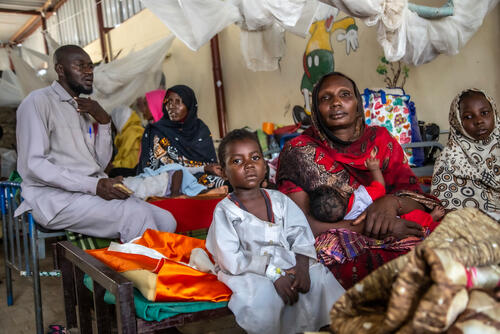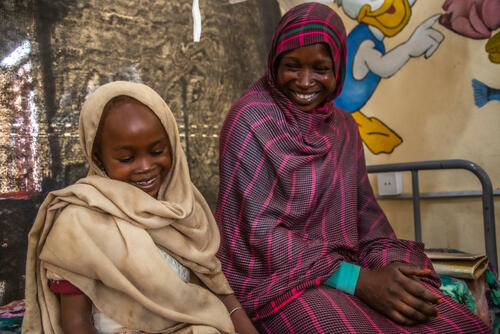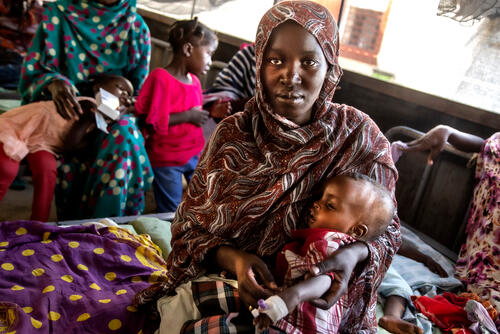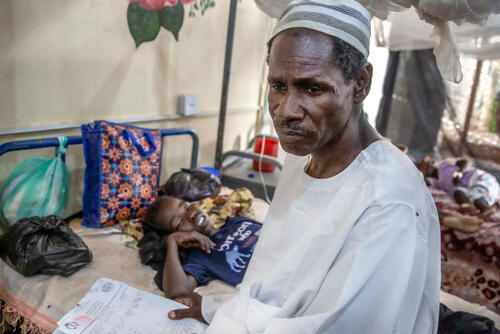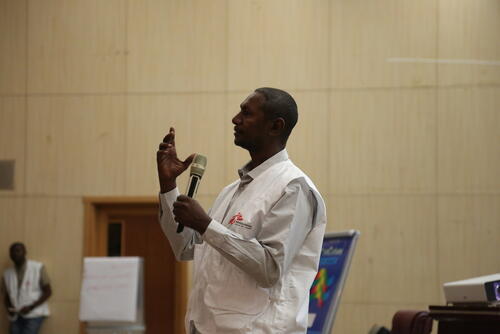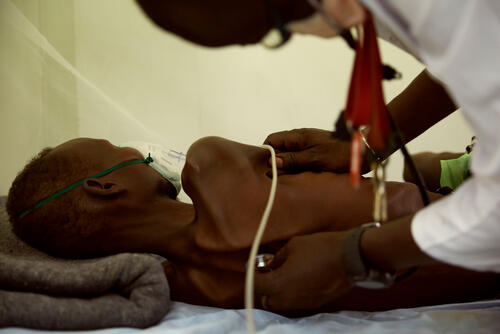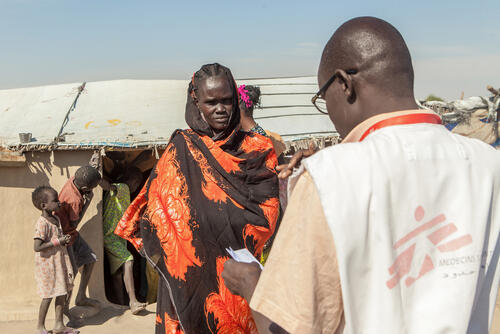Annie Kashung is MSF’s medical activity manager responding to the malaria outbreak in El Fasher, the capital of Sudan's North Darfur state. In this interview, she provides some insight into what is happening in response to four questions.
1. Why is the current malaria outbreak in El Fasher dangerous?
“Malaria is a parasitic disease transmitted by a mosquito. It can be very dangerous if it is not treated promptly and properly, potentially resulting in death.
“People develop different symptoms including high fever, vomiting, abdominal pain and joint pain. In some severe cases, people can have hallucinations, can fall into a coma and become unconscious.
“Sudan in general, and North Darfur state in particular, have a high burden of malaria with a seasonal peak during the rainy season. We usually monitor the situation, including in the state's capital, El Fasher, one of the country’s most populated cities, which hosts a large number of internally displaced people.
“We’ve seen in the city this year that there has been a sharp increase in the number of cases, around double the number than during the same period in 2018.”
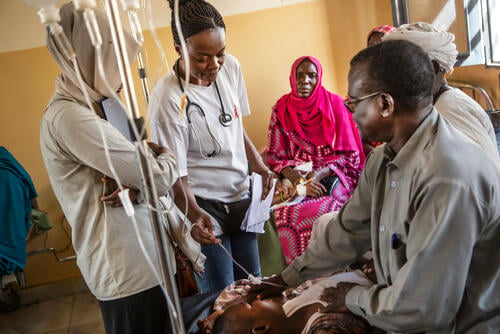
2. What is MSF doing to respond to the outbreak?
“Following the high increase of cases, at the end of September MSF decided jointly with the Ministry of Health to launch an emergency response. We are currently doing activities based in the two main referral health facilities of El Fasher: the Teaching hospital and the Paediatrics hospital. The aim is to strengthen the case management of malaria because it is very high and we are working 24/7.
“The average bed occupancy rate at the supported facilities has been 90 per cent above capacity over the last month. Sometimes there were three to four patients per bed in some wards. It was really congested, so we have set up tents to increase the bed capacity.
“We have also strengthened the triage system according to the severity of the patients arriving (urgent, severe, stable) to avoid missing critical cases or treating them too late resulting in deaths.
“Between 23 September and 26 October, we have carried out more than 13,000 rapid tests for malaria and 51 per cent of people tested positive. Our teams have admitted over 2,450 people to hospital since then, approximately half of them children.
“We have also launched mobile activities on the outskirts of the city, in rural areas and in places where there are camps for internally displaced people, so we are targeting the root problem in the community and this will allow us to reduce the burden and the number of people in the hospital. Nearly 3,000 people have been treated for malaria through these outreach services.”
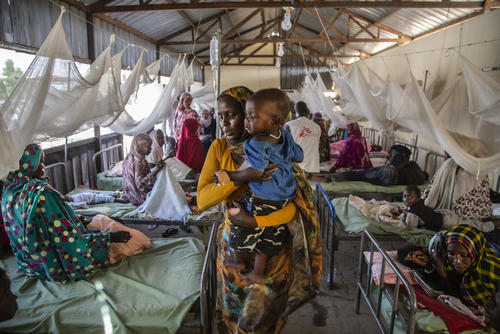
3. Who is affected by malaria?
“Malaria can target anyone. People are coming from different areas of the city and from surrounding villages. Women and men, locals and displaced people, and people of all age groups are affected.
“The most vulnerable people are children under five years of age. These children are arriving really critically ill and, in some cases, you can see that a lot of family members have been affected by malaria. This is affecting them psychologically, emotionally and physically. Some people arrive unconscious, they can’t talk or walk.
“On average, a child with severe malaria will stay between four to five days in hospital. The patient will start with intravenous malaria treatment depending on their weight. After 24 hours, we assess their status: if the patient can take oral tablets, then it will take them three more days to complete the dose.”
4. Which factors are causing the outbreak?
“There are different contributing factors involved in this large outbreak of malaria. North Darfur and El Fasher continue to have a big number of internally displaced people living in precarious conditions in different camps.
“The health facilities in the areas outside the city don’t have the same response capacity as those in the city and preventive measures implemented in the communities have often not been sustainable. While there have been distributions of mosquito nets, many households were not receiving enough, they received them late or were not using them properly.
“The rainy season this year has been longer and heavier than in 2018; normally it ends in September, but this year it’s lasting into October. And we have a lot of stagnant water, which means a lot of mosquitoes breeding, and they carry the parasite that causes malaria.”



